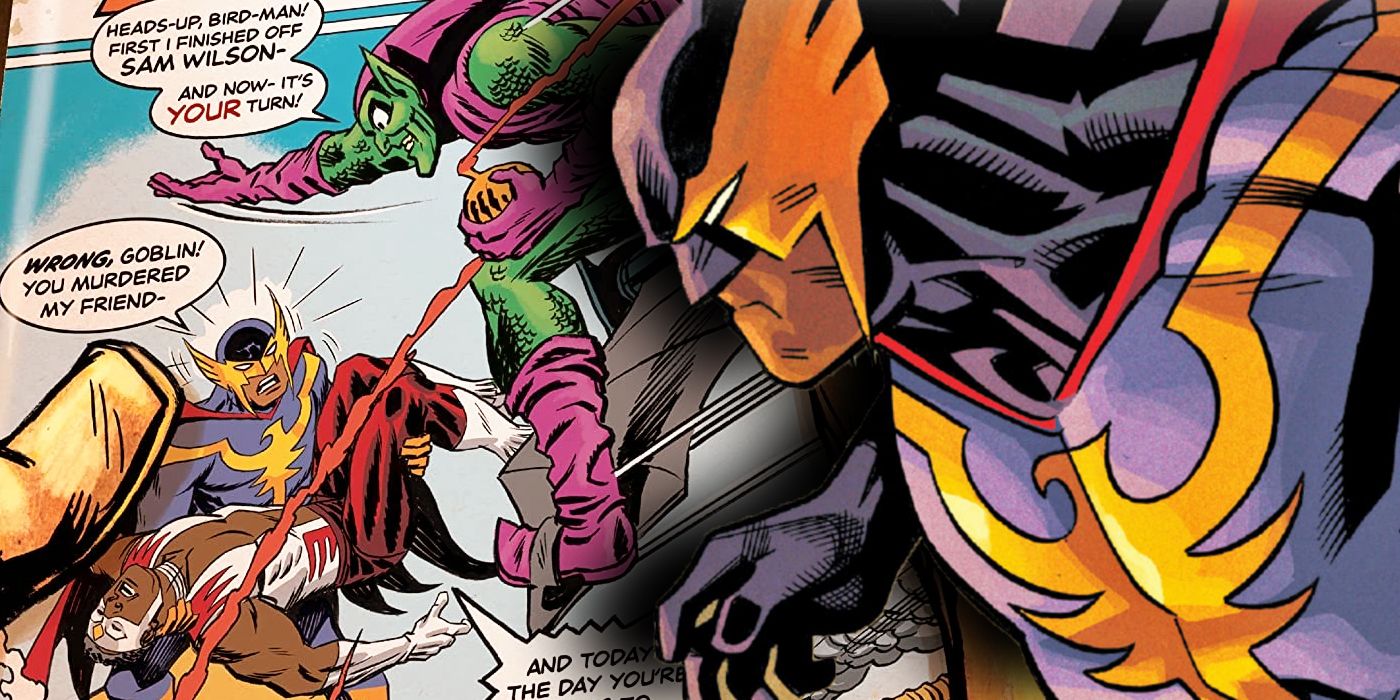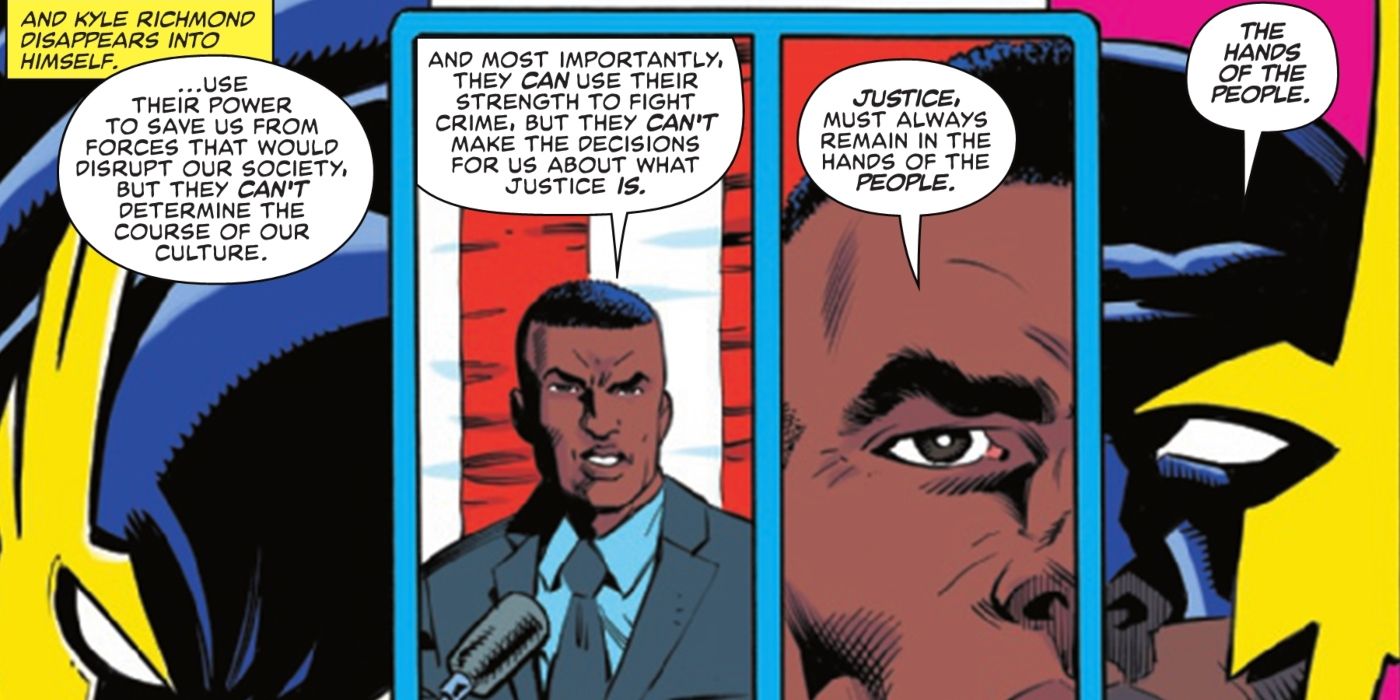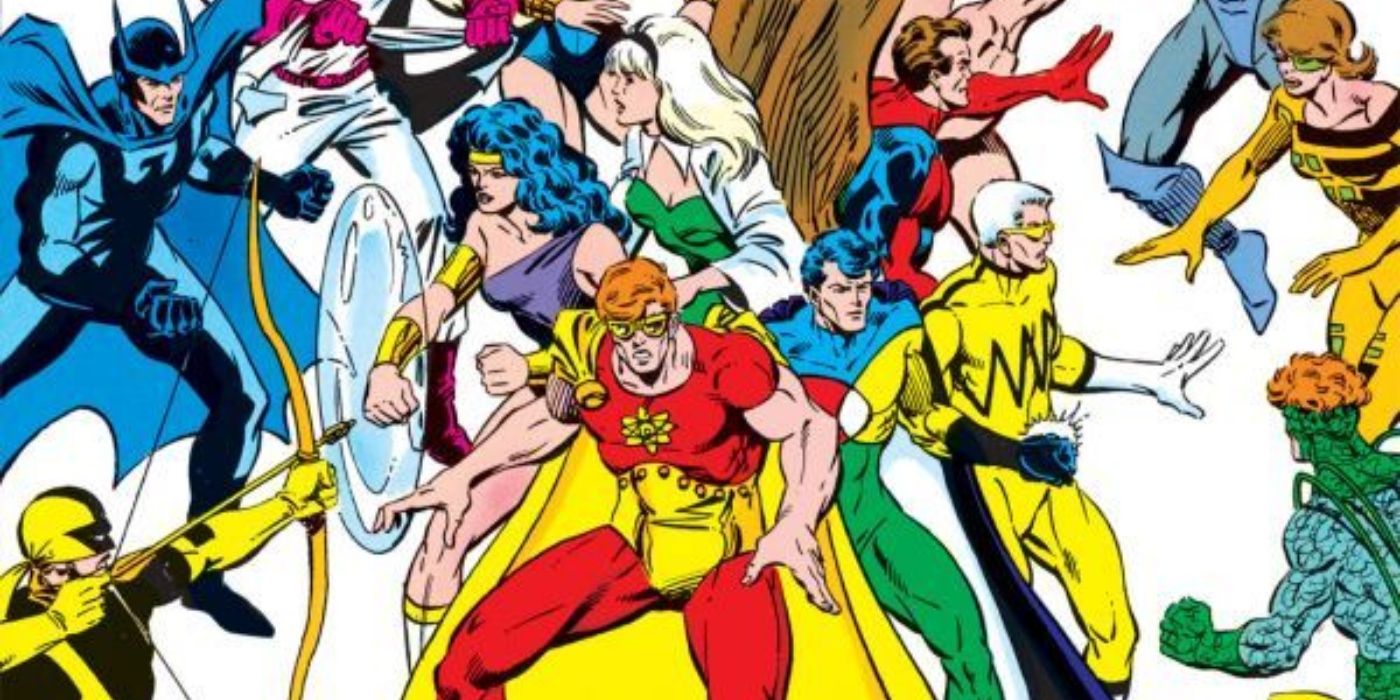The following contains spoilers for Heroes Reborn: Double Action #1 by Tim Seeley, Dan Jurgens, Scott Hanna, Chris Sotomayor & VC's Cory Petit, on sale now
Heroes Reborn: Double Action delves into a major moment in the history of the Heroes Reborn universe, a world where the Squadron Supreme was the chief protectors of a world defined by Mephisto. Specifically, the retro issue focuses largely on the event sleading up to the death of Nighthawk's partner the Falcon at the hands of the Goblin.
Dying in a similar manner to Gwen Stacy in the core-Marvel Universe, his demise results in a genuine moral challenge for Nighthawk -- that not only references his purposeful similarities to Batman, but also recalls the events of one of his most famous other incarnations.
Enraged at the death of his friend and partner, Nighthawk comes close to murdering Goblin for his crimes. But he specifically recalls a speech he'd made earlier that day in his public persona as Congressman Kyle Richmond -- arguing in favor of checks and balances on the Squadron Supreme, Richmond argued that the Squadron can't be allowed to "determine the course of our culture." Richmond made the case that they can't be allowed to make the decision on what justice is, as that must always remain in the hands of the people. He remembers these words as he spares the Goblin, deciding to hold true to his morals and ethics in the face of his rage.
It's a clever way of giving this version of Nighthawk his own take on Batman's famous "no killing" policy, which has been at the forefront of the character of the DC hero for much of his history. As the Batman analog among the Squadron Supreme, it's a perfect addition for the character. However, it also harkens back to another incarnation of Nighthawk, who held similar fears of the Squadron Supreme eventually turning against the world and effectively taking it over. In Squadron Supreme by Mark Gruenwald and Paul Ryan, a truly heroic incarnation of the Squadron Supreme do their best to protect Earth-712. However, their decision to try and turn the world into a utopia under their rule earns the ire of Nighthawk.
After the team votes on the "Utopia Program" and decides to through with it, Nighthawk leaves the team -- fearing that this kind of power is too much, even in their heroic hands. Although the Utopia Program results in short-term benefits, the development of technology that alters behavior and controls minds results in abuse from team members like the Golden Archer. While the team gradually commits increasingly morally dubious actions, Nighthawk assembles the Redeemers (a band of former heroes, reformed criminals, and super-powered rookies). The ensuing civil war results in numerous deaths, including Nighthawk.
But the chaos makes Hyperion finally realize that by taking control of the world, he and the rest of the team have effectively become the uncontested rulers of the world. They surrendered their power, and mourned for their fallen but validated friends. Nighthawk's belief that the Squadron could go too far could be seen as an evolution of the same ideals that appeared in Squadron Supreme, and likely played a major role in the unseen Civil War-style event that briefly led Nighthawk and Blur to relocate to Europe to create the ill-fated Secret Society. It's an interesting way for Nighthawk to reference both his DC inspiration AND his Marvel legacy, while still giving him a depth of character and a genuine heroic moment to stand out against some of his other, crueler side.



